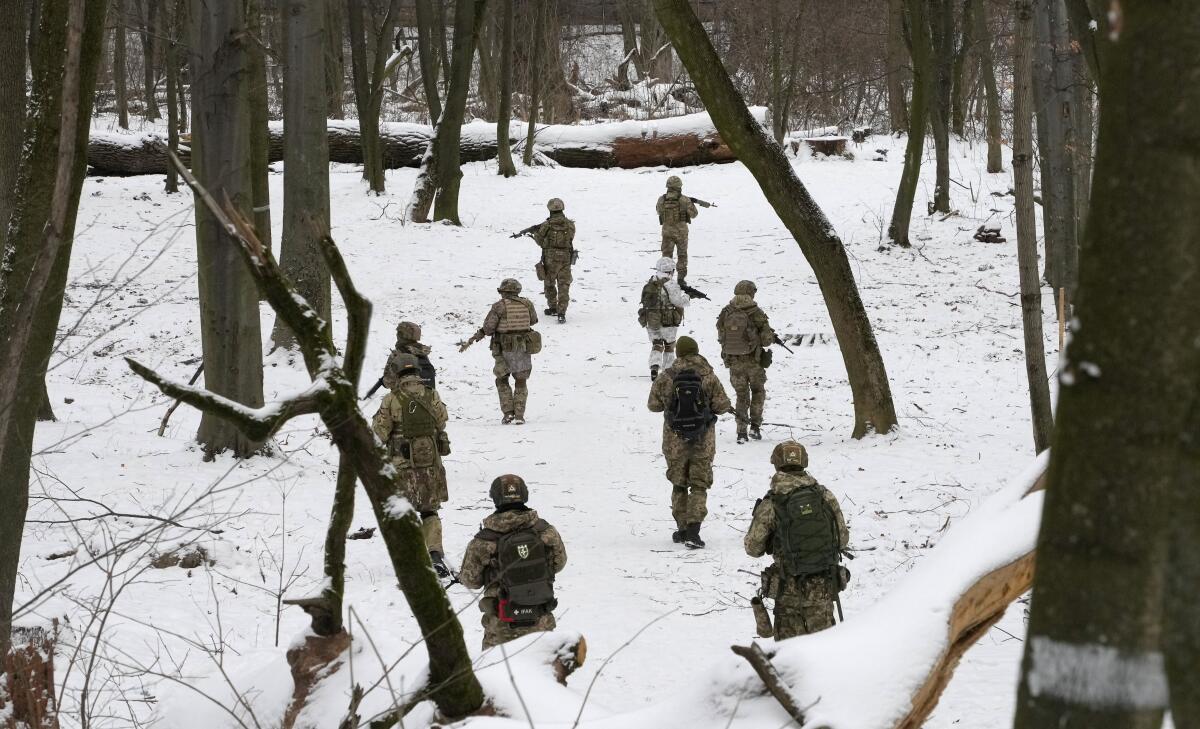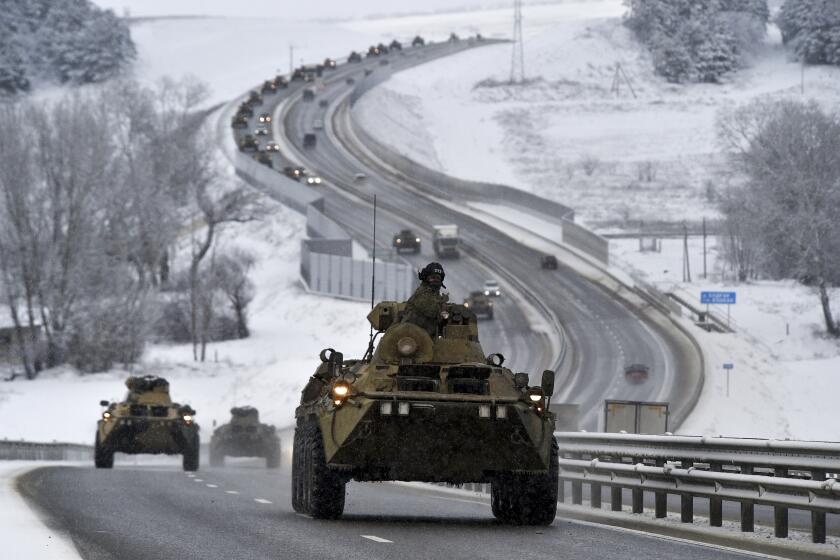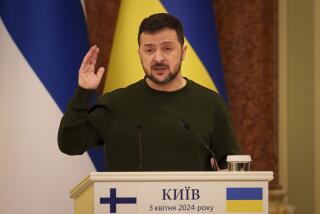Russia rejects U.K. claim that it is trying to replace Ukraine leader

- Share via
MOSCOW — Russia’s Foreign Ministry on Sunday rejected a British claim that Russia was seeking to replace Ukraine’s government with a pro-Moscow administration, and that former Ukrainian lawmaker Yevheniy Murayev was being considered as a potential candidate.
Britain’s Foreign Office on Saturday also named several other Ukrainian politicians it said had links with Russian intelligence services, along with Murayev, who is the leader of a small party that has no seats in parliament.
Those politicians include Mykola Azarov, a former prime minister under Viktor Yanukovych, the Ukrainian president ousted in a 2014 uprising, and Yanukovych’s former chief of staff, Andriy Kluyev.
“Some of these have contact with Russian intelligence officers currently involved in the planning for an attack on Ukraine,” the Foreign Office said.
Murayev’s Nashi party — whose name echoes the former extensive Russian youth movement that supported President Vladimir Putin — is regarded as sympathetic to Russia, but Murayev on Sunday pushed back on characterizing it as pro-Russia.
“The time of pro-Western and pro-Russian politicians in Ukraine is gone forever,” he said in a Facebook post. Shortly before the British statement was made public, he posted his face superimposed on a James Bond movie poster and the comment: “Details tomorrow.”
The British government on Saturday accused Russia of seeking to replace Ukraine’s government with a pro-Moscow administration, and said former Ukrainian lawmaker Yevheniy Murayev is being considered as a potential candidate
The U.K. government made the claim based on an intelligence assessment, without providing evidence to back it up. It comes amid high tensions between Moscow and the West over Russia’s designs on Ukraine and each side’s increasing accusations that the other is planning provocations.
“The disinformation spread by the British Foreign Office is more evidence that it is the NATO countries, led by the Anglo-Saxons, who are escalating tensions around Ukraine,” Russian Foreign Ministry spokeswoman Maria Zakharova said on the Telegram messaging app Sunday. “We call on the British Foreign Office to stop provocative activities, stop spreading nonsense.”
British Foreign Secretary Liz Truss said the information “shines a light on the extent of Russian activity designed to subvert Ukraine, and is an insight into Kremlin thinking.”
Truss urged Russia to “deescalate, end its campaigns of aggression and disinformation, and pursue a path of diplomacy,” and reiterated Britain’s view that “any Russian military incursion into Ukraine would be a massive strategic mistake with severe costs.”
Britain has sent anti-tank weapons to Ukraine as part of efforts to bolster its defenses against a potential Russian attack.
Mark Galeotti, who has written extensively on Russian security services, told the Associated Press, “I can’t help but be skeptical” about the British claim.
“This is one of those situations where it is hard to know whether what we’re facing is a genuine threat, a misunderstanding of the inevitable overtures that were being made to various Ukrainian figures by Russians or ‘strategic communication’ — which is what we call propaganda these days when we’re doing it,” said Galeotti. who is honorary professor of Slavonic and East European Studies at University College, London.
Amid diplomatic efforts to defuse the crisis, U.K. Defense Secretary Ben Wallace is expected to meet with Russian Defense Minister Sergei Shoigu for talks in Moscow. No timing has been given for the meeting, which would be the first U.K.-Russia bilateral defense talks since 2013.
The U.S. has mounted an aggressive campaign in recent months to unify its European allies against a new Russian invasion of Ukraine. The White House called the U.K. government assessment “deeply concerning” and said it stands with the duly elected Ukrainian government.
“The Ukrainian people have the sovereign right to determine their own future, and we stand with our democratically-elected partners in Ukraine,” National Security Council spokeswoman Emily Horne said.
The assessment came as President Biden spent Saturday at the presidential retreat, Camp David, outside of Washington huddling with his senior national security team about the Ukraine situation. A White House official said the discussions included efforts to de-escalate the situation with diplomacy and deterrence measures being coordinated closely with allies and partners, including security assistance to Ukraine.
In Washington on Sunday, the State Department ordered the families of all American personnel at the U.S. Embassy in Ukraine to leave the country amid heightened fears of a Russian invasion. The move came amid rising tensions that were not eased during talks Friday between the U.S. and Russia.
More to Read
Sign up for Essential California
The most important California stories and recommendations in your inbox every morning.
You may occasionally receive promotional content from the Los Angeles Times.











